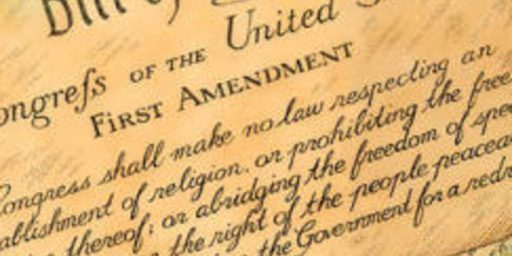Virginia Restricts Internet
For Many State Workers, an Unknown Restriction (WaPo)
In 1996, Virginia became the only state in the country to require its employees to ask permission before looking at sexually explicit material online. Professors, social workers, and public health officials all come under the scope of the law, which only exempts law enforcement officials. Educators challenged the law shortly after it was enacted but lost their fight to have it erased from the books in 2001, when the U.S. Supreme Court refused to take up the matter.
Since then, it’s been largely forgotten. Most Virginia schools and agencies include a note about the rule in their employee manuals, but professors and administrators say the law is rarely mentioned and almost never enforced. The state attorney general doesn’t have any record of prosecutions under the measure either, leaving it up to individual institutions to police their employees. Still, opponents like Meyers say the measure weakens academic freedom in the state, and poses the lurking threat of selective enforcement by unscrupulous supervisors looking to single out unpopular employees.
*** The law reaches beyond the confines of ivory tower. Although educators have been the most vocal critics, other state employees may be feeling the measure more keenly, as social workers investigating sexual abuse and public health officials monitoring the spread of sexually transmitted diseases have been forced to abide by strict rules for Internet access.
The article makes clear that the law is essentially ignored. Still, it’s rather silly. This is especially amusing:
William and Mary Provost Geoff Feiss used to be dean of the School of Arts and Sciences and the man in charge of approving Meyers’s requests. He doesn’t like the law any more than Meyers, but he dutifully reviewed and responded to the routine e-mails asking to search for potentially racy paintings and statues or sexually suggestive Victorian poems, like those written by 19th-century poet Algernon Charles Swinburne. Since taking over as the university’s top academic official, Feiss has left instructions with his successor to rubber-stamp every request that Meyers sends. “I suppose if I had been a vigilant administrator, I would have gone and visited them myself, but then I would have to get permission from somebody above me to visit them. I went along with this mainly to humor Terry,” Feiss said.
Heh.




